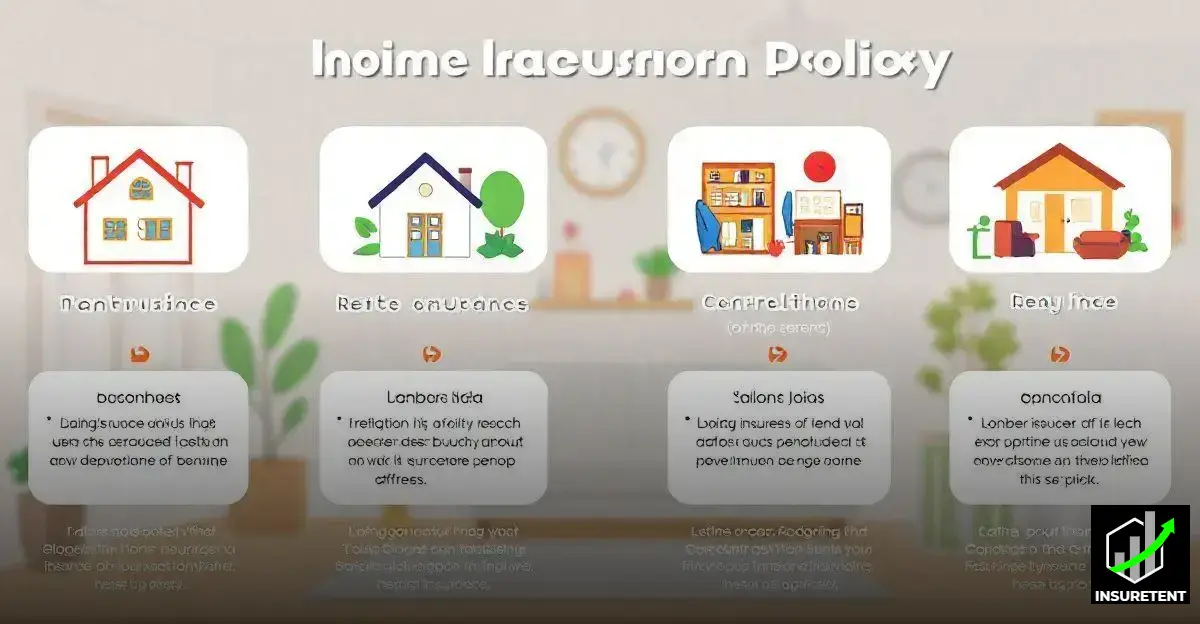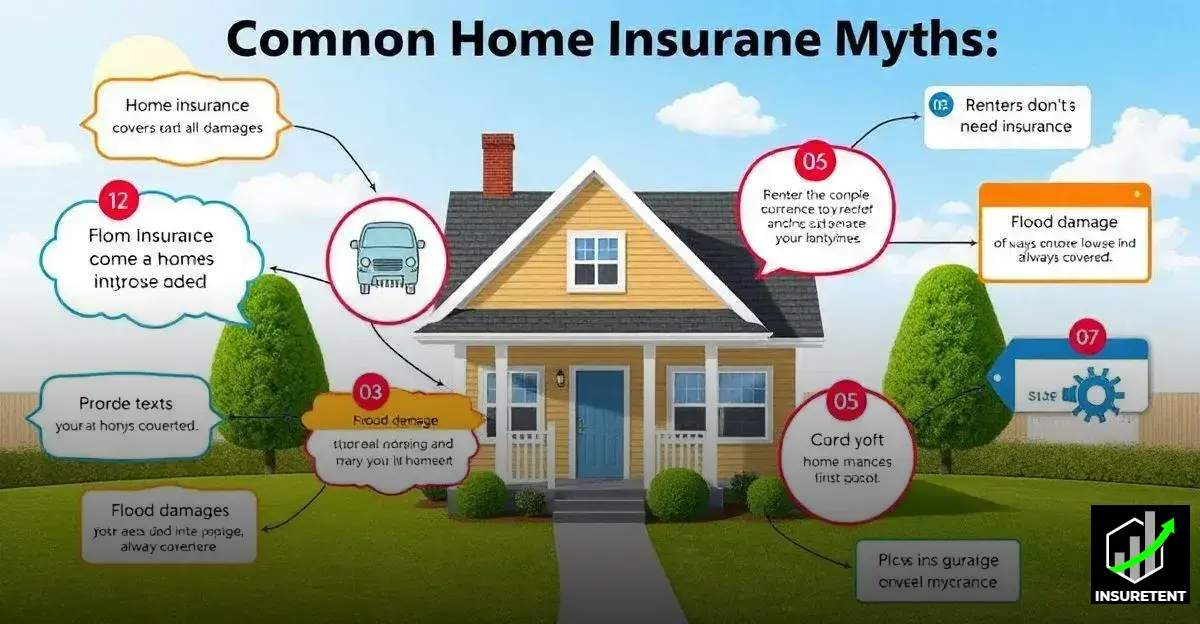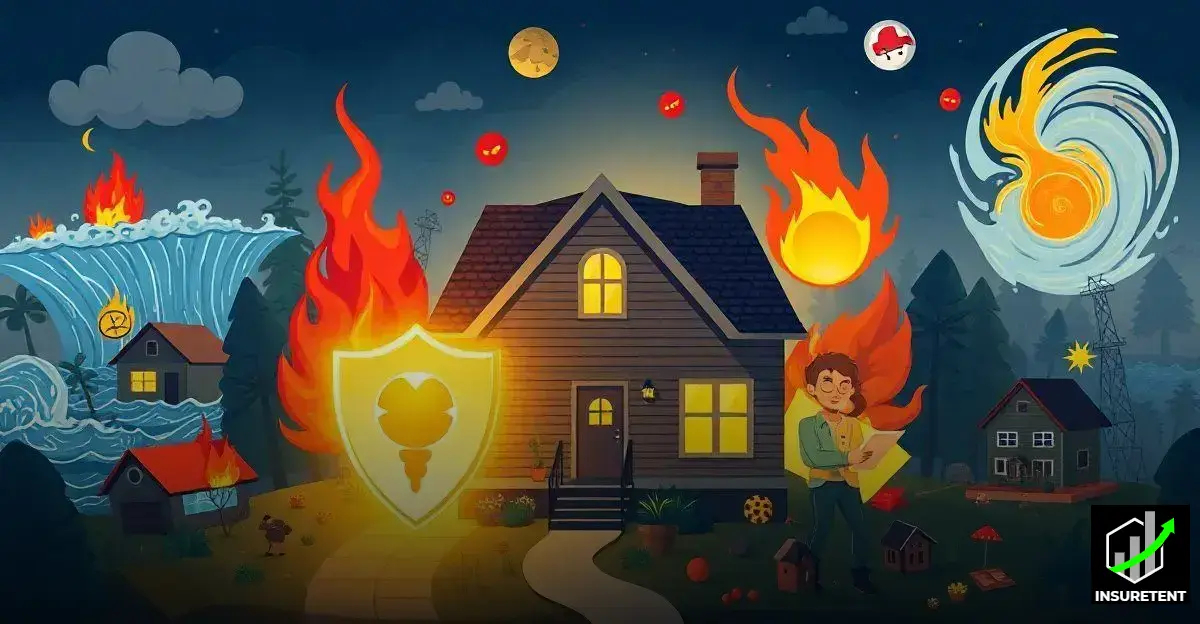Home insurance is crucial for safeguarding your property against unforeseen circumstances.
In a world where disasters can strike at any moment, having the right coverage provides peace of mind.
What is Home Insurance?
Home insurance is a type of insurance that protects your home and personal property from various risks. It covers damages caused by events like fire, theft, and natural disasters. By having home insurance, you ensure financial security against unexpected expenses resulting from such incidents.
Typically, home insurance policies also include liability coverage, which protects you if someone is injured on your property. This aspect is crucial as it can cover legal fees, medical costs, and any settlements if you are found responsible.
There are different types of home insurance policies available, such as HO-1, HO-2, and HO-3, each offering varying levels of coverage. It is essential to understand these options to ensure you choose the right policy for your needs.
In summary, home insurance helps provide peace of mind knowing that your home, an essential investment, is protected against unforeseen events.
Types of Home Insurance Policies

There are several types of home insurance policies available, each designed to meet different needs. The most common policy is the HO-3 policy, which provides comprehensive coverage for the structure of your home and personal property, covering risks unless specifically excluded.
Another policy is the HO-1, which offers basic protection covering a set list of perils. It is limited in scope and not as popular among homeowners today. The HO-2 is similar but provides broader coverage than the HO-1, including a variety of risks and perils distinct to the property.
For renters, HO-4 policies, also known as renters insurance, cover personal belongings but do not protect the structure since the renter does not own the property. Additionally, the HO-6 policy provides coverage for condominiums, helping protect personal property and structural improvements made by the owner.
Lastly, there is the HO-5 policy, which offers a higher level of coverage for both personal property and the home itself, ensuring a more extensive range against risks.
Choosing the right type of home insurance policy is crucial for adequate protection depending on your specific situation and requirements.
Factors Affecting Home Insurance Rates
Factors Affecting Home Insurance can significantly influence the cost and availability of coverage for homeowners.
Location: Areas prone to natural disasters or high crime rates typically have higher insurance premiums.
Age and Condition of Home: Older homes may require more maintenance, which can increase the likelihood of claims.
Credit Score: A better credit score usually correlates with lower premiums, reflecting responsible financial behavior.
Coverage Amount: Higher coverage limits generally lead to higher premiums, depending on the type of policy selected.
Safety Features: Safety features like security systems and smoke detectors can help reduce insurance costs and may qualify for discounts.
Benefits of Having Home Insurance

Home insurance offers numerous benefits that can provide financial security and peace of mind for homeowners. One of the primary advantages is that it protects your home and belongings against various risks, such as theft, fire, and natural disasters. This coverage ensures that you are not left to bear the entire financial burden if something unfortunate occurs.
Additionally, home insurance typically includes liability coverage. This means that if someone is injured on your property, the insurance can help cover medical expenses and legal costs, protecting you from potentially significant financial losses.
Another benefit is that having home insurance can provide access to discounts on other insurance policies. Many insurers offer lower rates if you bundle home insurance with auto or other policies.
Overall, home insurance is an essential investment for homeowners, ensuring that your property and assets are protected in times of crisis.
How to Choose the Right Home Insurance
Choosing the right home insurance involves several important steps. First, it is crucial to assess your specific needs and the value of your property. This will help you determine how much coverage you really need and what type of policy fits best. Consider factors like the location of your home, whether it is prone to natural disasters, and the safety features you have installed.
Next, compare different insurance providers. Look for companies that have good reputations and customer service ratings. Many websites allow you to compare quotes from various insurers, making it easier to find the best price for the coverage you need.
It is also advisable to read the details of the policy carefully. Look for any exclusions or limitations in the coverage. Ensure that you understand what is covered and what is not. This knowledge can save you from unexpected costs.
Finally, ask about available discounts. Many insurers offer discounts for bundling policies, having security systems, or being a loyal customer.
Common Home Insurance Myths

There are several myths about home insurance that can create confusion and lead to misunderstandings. One common misconception is that home insurance covers everything. In reality, most policies have exclusions, such as flood damage, which typically requires separate flood insurance.
Another myth is that older homes cannot be insured. While insurers do offer coverage for older homes, these may require special inspections and often come with higher premiums due to increased risks.
Some believe that home insurance is unnecessary for renters. However, renters insurance provides valuable protection for personal belongings and liability, similar to the coverage homeowners receive from home insurance.
It’s also a misconception that personal property is always fully covered. Most policies only cover belongings up to a certain percentage of the home’s insured value. Keeping an inventory of valuable items is essential to ensure adequate protection.
Understanding these myths allows you to make informed decisions and secure the right home insurance coverage for your needs.
Steps to File a Home Insurance Claim
Filing a home insurance claim can seem daunting, but it is a straightforward process if you know the steps involved.
First, ensure your safety and the safety of others if an incident occurs. This is the top priority before addressing any property damages.
Next, document the damage thoroughly. Take clear photographs and write a detailed description of what happened. This information will be vital in the claims process. Make sure to include the date and time of the incident.
Once you have documented the damage, contact your insurance company as soon as possible. Most insurers have a dedicated claims line that you can call. When you do, be ready with your policy number and the details of the incident.
After you file the claim, an insurance adjuster may be assigned to assess the damage. They will contact you to discuss the claim and might schedule a visit to your property. Make sure to cooperate fully with them and provide all required information.
Finally, keep track of all communications with your insurance company. Record the names of people you speak with and the details discussed. This will help ensure that there are no misunderstandings during the claims process.
Home Insurance and Disaster Preparedness

Home insurance plays a vital role in disaster preparedness. When an unexpected event like a flood, fire, or storm occurs, having the right insurance can ease the financial burden. It is important for homeowners to understand their policies and ensure that they have adequate coverage for various disasters.
To prepare for disasters, homeowners should first review their home insurance policy. This involves checking what perils are covered and identifying any exclusions. Many policies may not include specific disasters, such as earthquakes or floods, so it is essential to consider additional coverage if you live in a high-risk area.
Another key step is to create a home inventory. Documenting all personal property, including valuable items, can streamline the claims process after a disaster. Take photographs and note down details like serial numbers and purchase dates.
Additionally, ensure that your home is equipped with safety measures to mitigate damage. This could involve installing smoke detectors, securing heavy furniture, or waterproofing your basement. Having these precautions can not only protect your home but may also lower your insurance premiums.
Finally, maintaining open communication with your insurance provider is crucial. Discuss any changes to your home or belongings, and ask questions about your coverage. Being proactive will help ensure that you are well-prepared in case of a disaster.
Understanding Home Insurance Exclusions
Understanding home insurance exclusions is crucial for all homeowners. While home insurance provides valuable coverage, it often has specific exclusions that can impact your protection in case of a claim. Common exclusions include flood damage, earthquake damage, and regular wear and tear on the property.
Natural disaster exclusions: One major exclusion is damage caused by natural disasters. Many standard policies do not cover floods or earthquakes, which may require separate insurance policies. Homeowners in high-risk areas should consider purchasing additional coverage to protect against these events.
Maintenance-related exclusions: Another common exclusion is damage from lack of maintenance. Insurance policies typically do not cover repairs needed due to neglect. For instance, if a roof leaks because it has not been maintained, that damage might not be covered by your policy.
Personal belongings coverage: Additionally, personal possessions often have specific limits on coverage. Expensive items like jewellery or art may not be fully covered without riders or additional endorsements. Homeowners should assess their belongings and ensure they are adequately insured, especially for high-value items.
Advice: It is essential to read your policy carefully and discuss any questions with your insurance provider. Understanding what is excluded from your coverage helps you make informed decisions and ensure you have the protection you need for your home.
Frequently Asked Questions about Home Insurance
What is home insurance?
Home insurance is a type of insurance that protects your home and personal property from various risks, such as theft, fire, and natural disasters.
What are the common types of home insurance policies?
The most common types include HO-1, HO-2, HO-3, HO-4 (renters insurance), and HO-6 (condo insurance), each offering different levels of coverage.
How can I lower my home insurance premiums?
You can lower your premiums by increasing your deductible, installing safety features like alarms, and maintaining a good credit score.
Are natural disasters covered under home insurance?
Many standard home insurance policies do not cover natural disasters like floods or earthquakes. Additional policies may be needed for such coverage.
What should I do in case of a home insurance claim?
Document the damage, contact your insurance provider, and file a claim as soon as possible, providing all necessary details and evidence.
What are common exclusions in home insurance policies?
Common exclusions include damage from lack of maintenance, natural disasters not covered under the policy, and specific high-value personal items.
Is home insurance necessary for renters?
Yes, renters should consider renters insurance as it covers personal belongings and provides liability protection.
Check out our article on Travel Insurance to learn how to protect your trips with confidence.
